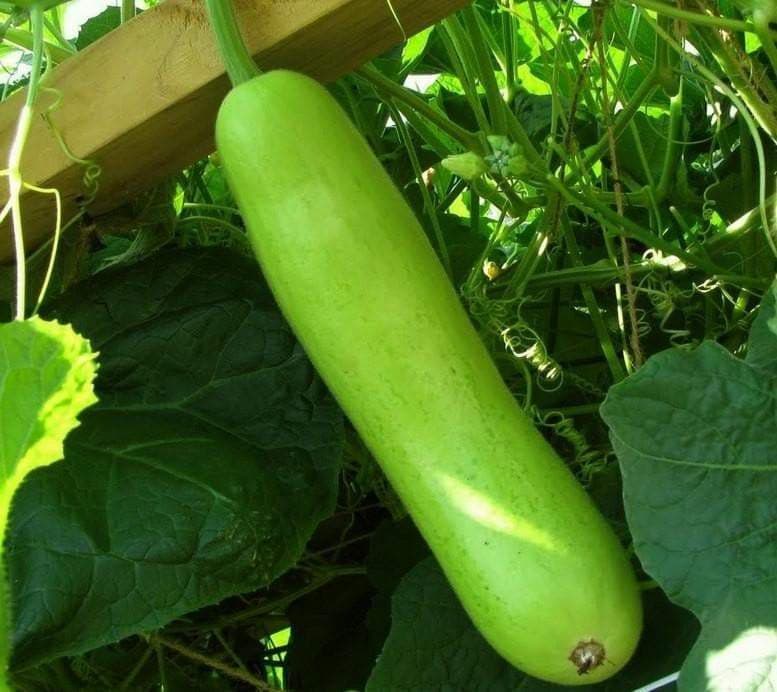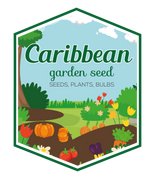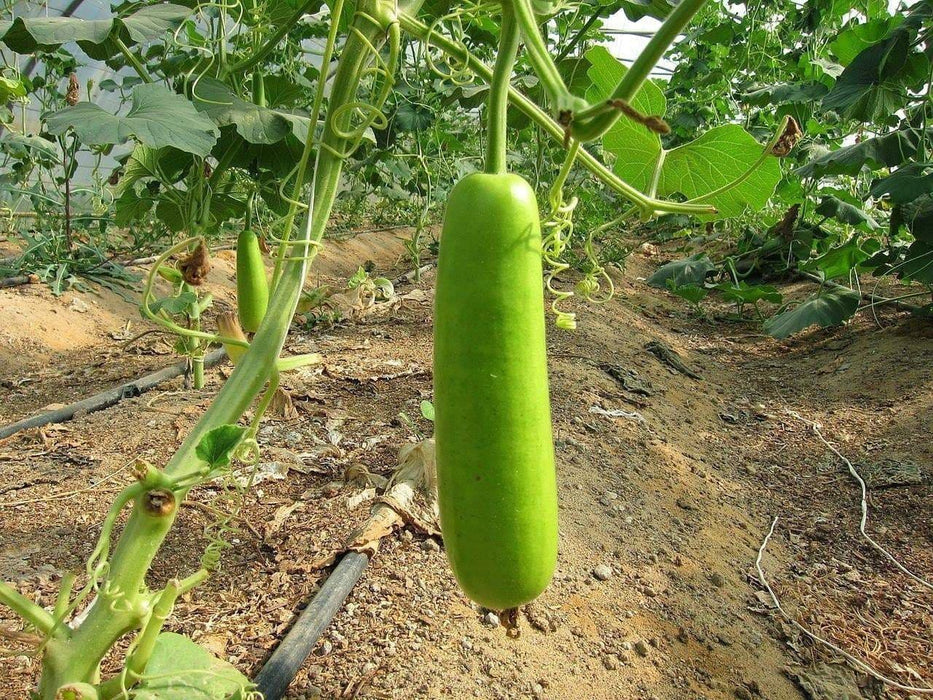
Calabash Long ,Edible bottle gourd Seeds (Asian vegetable)
Most orders are processed by the next day
Select your desired size and/or color from the available options.
Calabash Long ,Edible bottle gourd.
(Lagenaria siceraria)
This calabash gourd variety produces a long bat-shaped gourd that is most tender when picked 14-24" long. The light green skinned fruits have white flesh and are sweet and entirely edible when harvested at this immature stage. The gourd can be left to fully mature and the skin will harden. The vine is very vigorous and has white flowers.
130-300 Per oz
Planting season: Late spring to early summer
Asian vegetable names...
China: peou gwa, po gua, poo gua, , dudhi, hu gau, hu lu gua
India: lauki
Japan: kampyo, yugao
Philippines: upo
Thailand: buap khaus
Vietnam: bau
MORE DETAILS
The Calabash, Lagenaria siceraria (synonym Lagenaria vulgaris Ser.), also known as opo squash, bottle gourd or long melon is a vine grown for its fruit, which can either be harvested young and used as a vegetable, or harvested mature, dried, and used as a bottle, utensil, or pipe. The fresh fruit has a light green smooth skin and a white flesh. Rounder varieties are called calabash gourds. They come in a variety of shapes, they can be huge and rounded, or small and bottle shaped, or slim and serpentine, more than a metre long.
Known more in the Chinese regions and Indian subcontinents, bottle gourd has many names in local dialects such as hulu, calabash, lauki, laau, dhudhi, hyotan, hisago etc.
The calabash was one of the first cultivated plants in the world, grown not primarily for food, but for use as a water container. The bottle gourd may have been carried from Africa to Asia, Europe and the Americas in the course of human migration, or by seeds floating across the oceans inside the gourd. It has been proven to be in New World prior to the arrival of Columbus. It shares its common name with that of the calabash tree (Crescentia cujete).
Bottle gourd has been archaeologically known to be used since 11,000 to 13,000 years and has served as a popular vegetable in the Asian regions for a long time. The recent researches that have revealed its medicinal properties such as digestion improvement and weight loss are resulting into worldwide popularity of it.
This bottle gourd produces extra long fruits, 3-4 ft. in length and 6-9 Lb. in weight, with light green skin and white flesh. Plants are very vigorous and grow very fast during the warm summer season. It is suggested to grow this variety along supports for getting the cylindrical bottle shaped gourds, although it can also be grown on the ground in open field. Young gourds are often harvested at about 2 ft. long stage for obtaining the best eating quality, while the fully matured/dried/hardened fruits, 3-4 ft. long, are used for making decorative items. An interesting variety for your backyard growing.
Cultivation: Needs a long, warm growing season. Prepare fertile, well drained soil. Sow seeds in spring/early summer after last frost in a warm, sunny location. Hill planting: Form soil into a 1-ft. diameter mound 3-4' tall. Space mounds 5-10' apart. On each mound plant 1-2 seeds. Row planting: See spacing info in chart. Keep soil moist. Fertilize as needed. Train to climb a vertical support for better air circulation, straighter fruit and ease of harvest or leave to sprawl on the ground. May need hand pollinating.
LET OUR CUSTOMER SPEAK FOR US

![[Seeds] - Caribbeangardenseed](http://caribbeangardenseed.com/cdn/shop/files/gift-card-gift-card-1_1024x1024_dfa857db-9150-4315-a362-7f0bb3fb9c47_60x28.png?v=1703978838)
